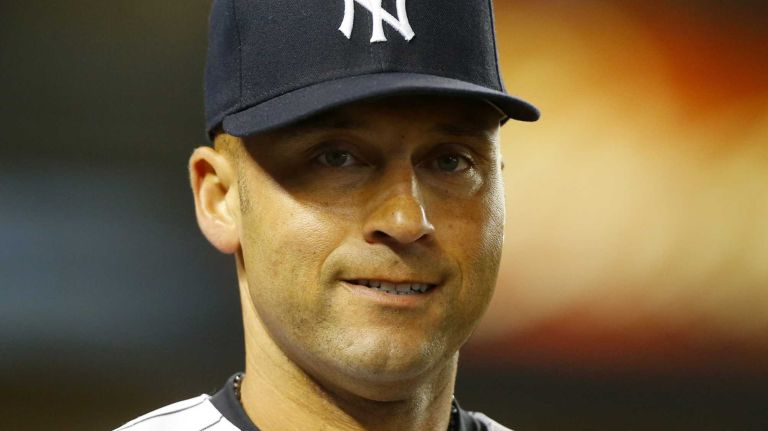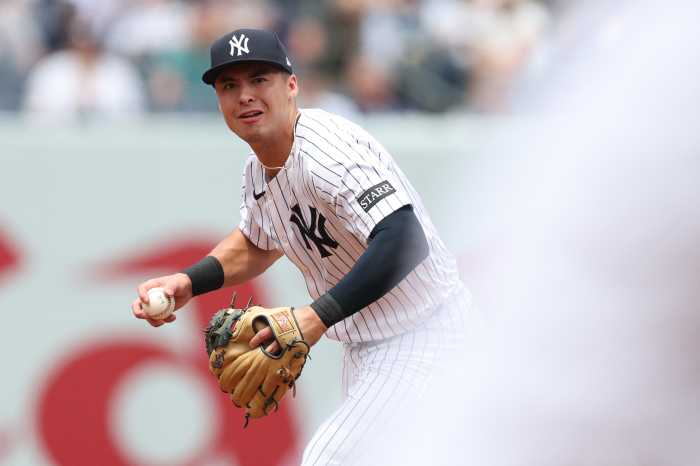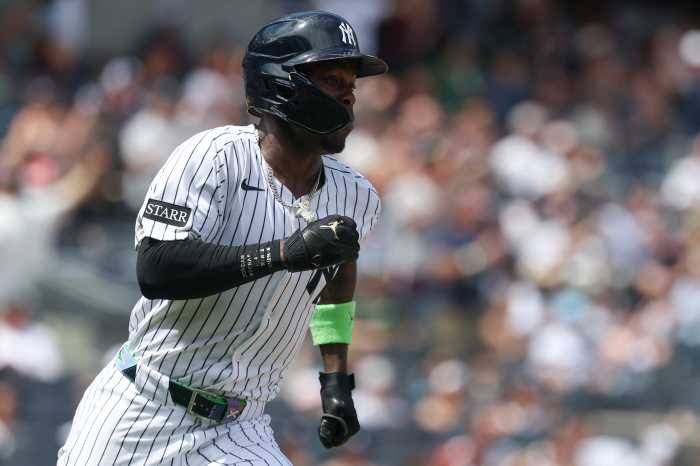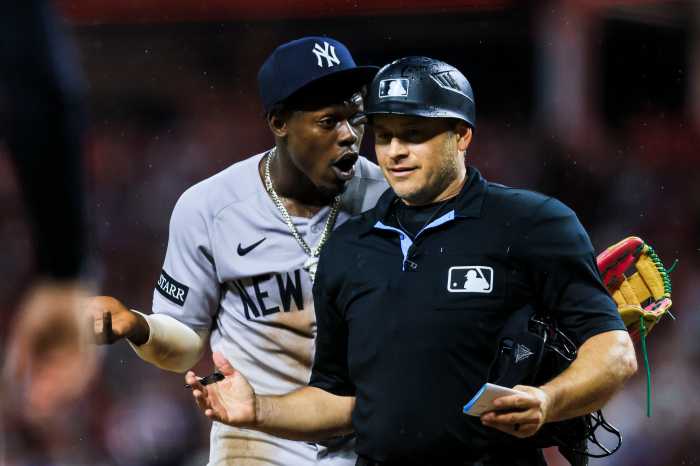Derek Jeter’s election into the Hall of Fame came as no surprise to the baseball world.
The only question that came with his candidacy was whether he would join his teammate, Mariano Rivera, as the only other unanimous Cooperstown pick in the Hall of Fame’s history.
His odds looked good. The Yankees captain, who delivered 3,465 hits and five World Series titles, will forever be considered as one of the greatest shortstops in MLB history.
Which is why it came as such a shock when the final tally came in with Jeter receiving 396 of a possible 397 votes from the Baseball Writers Association of America.
Caring about such a minuscule fact has already sparked a debate around Major League Baseball.
At the end of the day, Jeter’s a Hall of Famer — a first-ballot Hall of Famer at that. He also has the highest voter percentage of any position player enshrined in Cooperstown at 99.7.
Yet here we are, scouring the internet for the lone nincompoop who decided not to put Jeter on his ballot.
Whether he or she was a writer from Boston or Houston — or just wanted the notoriety of being the lone human being to deny Jeter such honor of unanimous approval — it’s quite a slight even if it did not affect Jeter’s chances of getting in.
But when you look at the history of Baseball Hall of Fame elections, Jeter’s non-unanimity is nothing compared to some of the other puzzling decisions the writers have made over the years.
Here are a few of the worst:
1) Jimmie Foxx was one of baseball’s most prolific sluggers of the 1920s and 1930s with the Philadelphia A’s and Boston Red Sox. Had it not been for Babe Ruth, he would be the man considered baseball’s first real slugger.
Over 20 MLB seasons, he batted .325 with 534 home runs, which was second all-time behind Ruth at the time of his retirement in 1945.
Yet Foxx received just 79.2-percent in his sixth year on the ballot in 1951 (there was no five-year waiting period before appearing on the ballot at the time).
2) The year Foxx retired, 1945, 56 future Hall of Famers were featured on the ballot. Not a single player was selected for enshrinement.
The following year, 46 future Hall of Famers were on the ballot. Once again, no one got in.
3) The Yankee Clipper, Joe Dimaggio, was a 13-time All-Star, a three-time AL MVP, a nine-time World Series winner, and a two-time AL batting champion.
He hit 361 home runs in just 13 years in a career that was shortened due to military service, batted .325, and holds the MLB record for the longest hitting streak at 56-straight games.
Yet he had to wait three years before getting the call to the Hall in 1955.
4) Out of Hank Greenberg’s 13 MLB seasons, he played in 100-plus games just nine times. He led the league in home runs in four of them, smacking 331 home runs in 1,394 career games.
Had he played a full career — which also featured a three-year break for military service — he would have breezed by the 500 home-run plateau.
The Detroit Tigers star had to wait eight years to get in.
5) Ted Williams, one of the greatest pure hitters of all-time with a .344 career average, 521 home runs, and an MLB-record .482 on-base percentage, wasn’t a unanimous Hall of Famer.
6) Stan Musial — a three-time NL MVP, an astounding 24-time All-Star, and a seven-time batting champion with more hits than Jeter and 475 home runs — wasn’t a unanimous Hall of Famer.
7) The most well-rounded player to ever don a baseball uniform, Willie Mays, wasn’t a unanimous Hall of Famer.
He hit 660 home runs, posted 3,283 hits, won two MVPs, 12 Gold Glove Awards, and was also selected to 24 All-Star Games.
8) The man who many still consider being baseball’s true home-run king, Hank Aaron, received 97.8-percent of the vote. And that was after a career in which he hit 755 home runs, drove in an MLB-record 2,297 runs, and collected 3,771 hits.
Yes, Jeter not being unanimous is a major slight. But there have been far, far worse instances over the last 80 years.





























